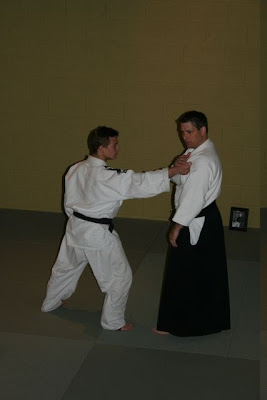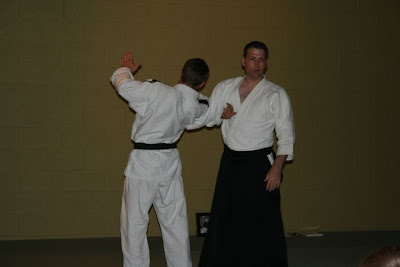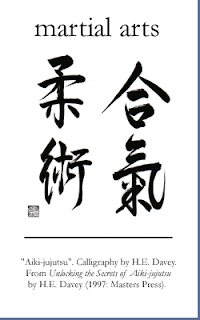 Since 1981, the Sennin Foundation Center for Japanese Cultural Arts as been offering a fun and well-structured program in Japanese yoga and martial arts for children age five and above. These affordable classes are taught by experienced instructors and are non-competitive. Class sizes are small, and instruction is personalized.
Since 1981, the Sennin Foundation Center for Japanese Cultural Arts as been offering a fun and well-structured program in Japanese yoga and martial arts for children age five and above. These affordable classes are taught by experienced instructors and are non-competitive. Class sizes are small, and instruction is personalized.The Sennin Foundation Center presents training in Saigo Ryu aiki-jujutsu, a traditional martial art. While many Westerners use “jujutsu, jujitsu, or jiu-jitsu” to describe their art of self-defense, most of these methods bear little resemblance to the original Japanese jujutsu, Japan’s oldest martial art. Both aikido and judo stem from jujutsu, and our dojo is one of few in the USA to offer authentic Japanese jujutsu.
Our class features a wide variety of powerful throwing, pinning, and grappling techniques stemming from older methods (kobudo) originating in the Aizu-Wakamatsu area of Japan. Saigo Ryu also features advanced training in the sword, spear, staff, short stick, iron fan, and other weapons. It is unique and distinct from many more well-known martial disciplines (like karate-do, kendo, and iaido). While training is dynamic, and the practiced self-defense techniques effective, the emphasis is on subduing an opponent without unnecessary injury. Children improve their health while learning martial arts as meditation, which helps them to remain calm under pressure. Some students have likened training in our dojo to “moving Zen.”
Instruction in the Shin-shin-toitsu-do system of Japanese yoga and meditation is included at no extra charge. Japanese yoga training makes it easier to master the martial arts, and it helps children to realize their full potential in other activities as well. Studying Japanese yoga and aiki-jujutsu gives young people a great opportunity to develop self-discipline, self-confidence, willpower, respect for others, as well as a stronger mind and body. Children learn meditation, stretching, breathing exercises, mind and body coordination drills, along with valuable self-defense techniques. Training in Japanese martial arts is vigorous, but due to the disciplined nature of our classes, we have few injuries. Parents report that their children show increased calmness at home, confidence in social situations, and better grades in school.
As someone who began studying Japanese yoga and martial arts as a child, H. E. Davey Sensei, one of the highest ranking traditional jujutsu teachers outside of Japan, was ideally suited for creating a program for children. Under his guidance, and with the help of his staff of expert teachers, young people from Albany, Berkeley, and the Bay Area have discovered their true potential and hidden talents for many years.
Parents can learn more about our program for children by visiting Martial Arts & Kids. Give us a call at 510-526-7518, and we’ll be happy to discuss how we can help your son or daughter to become healthier, safer, and more confident.




















